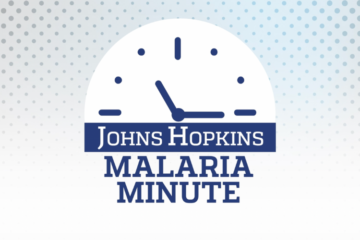The Latest Malaria News, in 60 Seconds.
Researchers identify a mutation to the malaria parasite which can drive resistance to artemisinin and people around the world mark World Mosquito Week.
Malaria Minute on iTunes and Spotify
Transcript:
Resistance to artemisinin, which causes delayed parasite clearance following ACT treatment, is widespread across Southeast Asia and, for the first time, has now been identified in Africa. Before conducting an efficacy trial, researchers examined the malaria parasites of trial patients. They found that a specific mutation to the PfKelch13 domain, called R561H, was present in over 7% of samples. This particular mutation can drive resistance to artemisinin. Although worrying, the Medicines for Malaria Venture is keen to stress that the presence of this mutation does not necessarily imply resistance, so long as the partner drug is still working. Indeed, in the trial, both ACTs – dihydroartemisinin-piperaquine and artemether-lumefantrine – had cure rates of over 95%.
And World Mosquito Day was marked this week. The annual event recognises the discovery of Sir Ronald Ross that mosquitoes transmit malaria.
Sources:
World Mosquito Day (RBM Partnership to End Malaria)
Image Credits: A Mother and Child Receive Medication in Angola/US PMI


